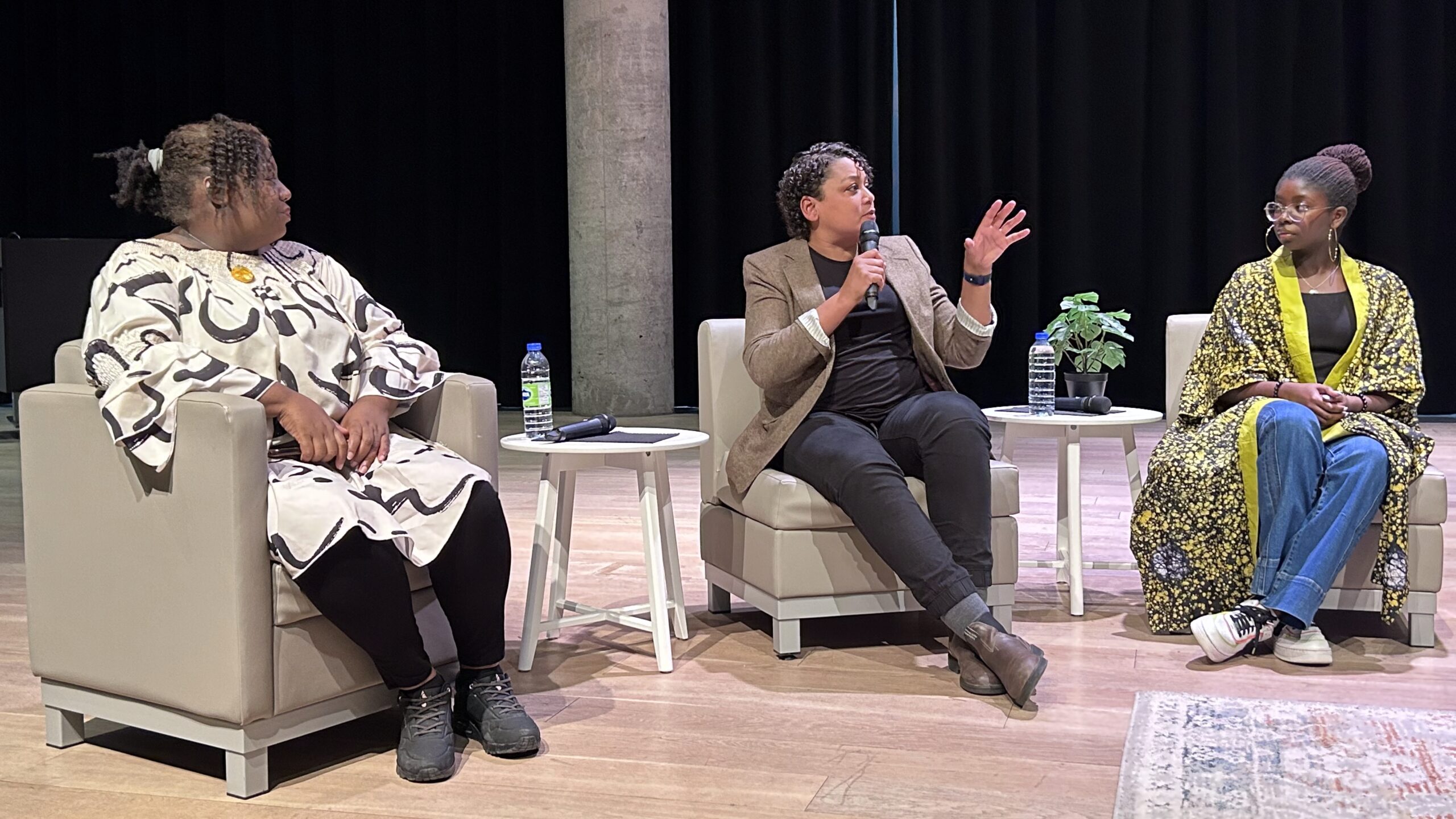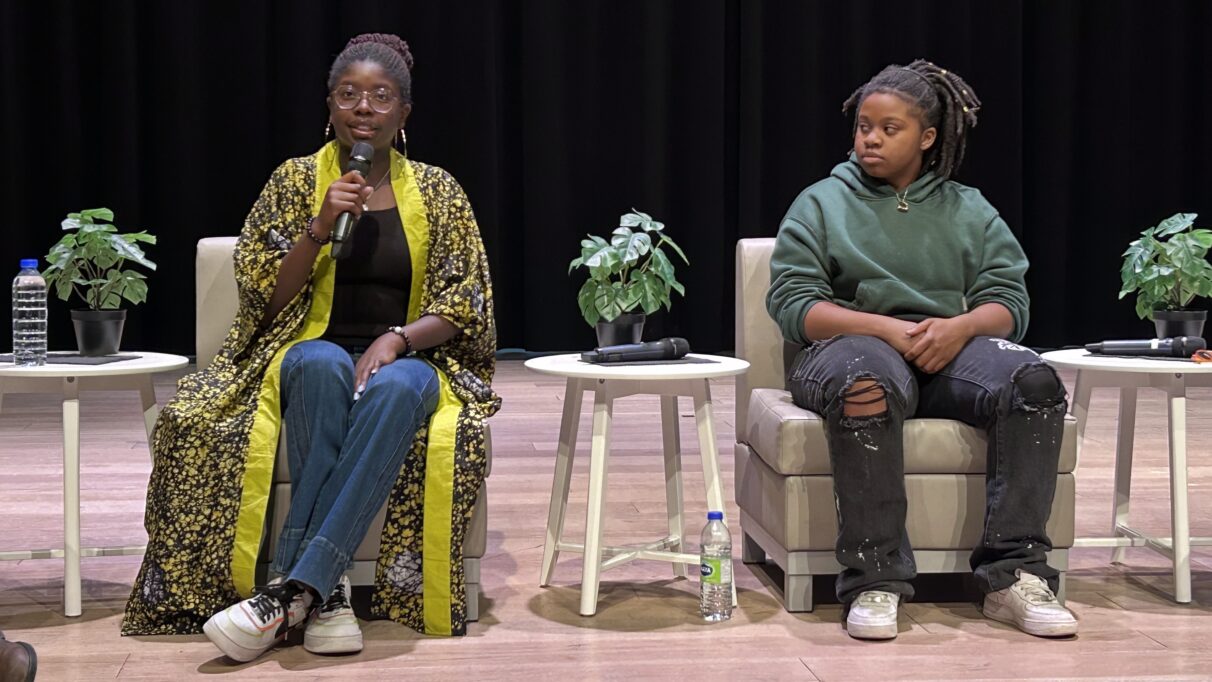Panel highlights achievements, struggles and hopes for the future of Black artists
Multiple generations of artists share their perspectives

caption
Panellists Tara Taylor, left, Cherissa Richards, centre, and Damini Awoyiga discuss community support in the arts during a panel discussion at Halifax Central Library.A panel at the Halifax Central Library on Monday acknowledged the progress being made for Black artists in all disciplines but suggested that momentum is slowing down.
“We’re in 2025 now, and the doors are starting to close a little bit more and more,” said panellist Cherissa Richards, who is directing Neptune Theatre’s production of Controlled Damage, about civil rights icon Viola Desmond.
“I’ve told young Black mentors, mentees and artists to get their foot in now so we can keep making art and claiming our space.”
The event was organized for Black female artists to discuss underrepresentation, tokenization, and a lack of access to resources.
Mentorship was a major topic of discussion. The panellists emphasized the importance of deep-rooted community support to help Black artists break into the arts. They stressed that such change requires not just individual effort but structural shifts, particularly when institutional support falls short.
“It’s structural change. It’s trying to get inside institutions and do what you can to shake those institutions out, keep the door open for others to come through,” said panellist and filmmaker Sylvia Hamilton.
The panel also highlighted the importance of fostering younger talent as well as learning from them.
“I can learn as much from a mentee as I can from my mentors,” said Richards.
This was furthered with the addition of HRM youth poet laureates Damini Awoyiga and Aisha Sparks. Both were invited to join the discussion by Hamilton.
“I don’t know of any other city in Canada that has had two young Black women as youth poet laureates,” said Hamilton. “I’m just thrilled to be sitting here with these two brilliant young creators.”

caption
Youth poet laureates Damini Awoyiga and Asiah Sparks share their experiences as young artists.Abdosh reflected on the importance of having these conversations between generations. “I think it’s really important to have these discussions because it helps us identify where the gaps are,” she said.
“It’s about carrying along everyone … reaching back to talk to the elders, while also getting the younger generation’s perspective.”
“Oh my goodness, the biggest takeaway was the young folks,” added another panellist, playwright Tara Taylor.
“I’m so proud of the generation coming behind me — because I was worried for a minute — that they are confident, they’re doing their thing.”
Wally Burke, a novice filmmaker, was among the around 20 attendees. He said he related to the panel’s emphasis on community.
“The thing I found most difficult was the community issue — being able to get into a community that’s going to be supportive,” Burke said. “You need a space where you can share ideas, find like-minded people, and get things happening.”
The panel concluded with a call for continued action for Black artists to build stronger communities and create opportunities for one another in the arts.

